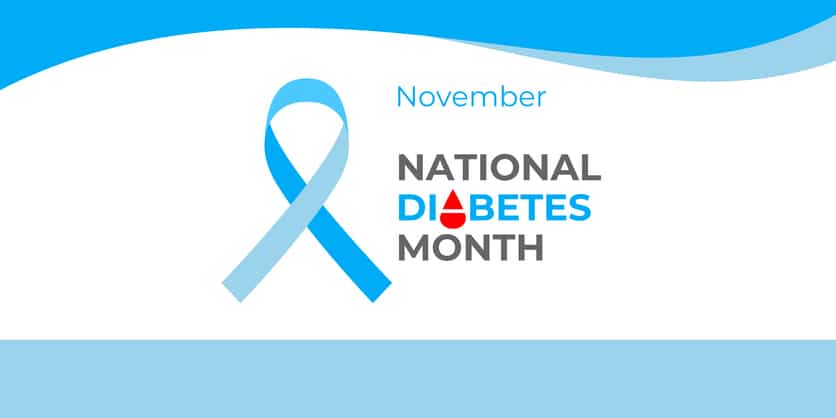
November is National Diabetes Month, Diabetes Awareness Month, and November 14 is World Diabetes Day. According to the CDC about 1 in 3 Americans (approximately 88 million people) have pre-diabetes. Now is the time for nutrition professionals to create awareness and encourage patients and clients to make healthy lifestyle changes to help prevent pre-diabetes/diabetes.
Small steps make a big difference! Diabetes can be prevented and/or managed by adopting a more active lifestyle, eating foods that are high in fiber and low in fat and sugar, and drinking more water instead of sweetened drinks. By taking small steps towards a healthier lifestyle, your patients can reduce their risk and lower their A1C levels if they already have diabetes.
Learn how you can influence your patients/clients to make positive changes for better health by reading the informative articles below. These resources can help you with positive conversations about what diabetes is and what kind of changes can be implemented for prevention or disease management.
National Diabetes Month
November is National Diabetes Month, a time focus on this important health condition. The focus this year is on prediabetes and preventing diabetes. The good news is that by making small healthy lifestyle changes, it is possible to prevent type 2 diabetes and even reverse your prediabetes.
Read on for some tips to help your patients/clients manage prediabetes and prevent diabetes.
November: World Diabetes Day and Diabetes Awareness Month
Healthline
We believe the need for diabetes awareness month is more important than ever because of high-stakes issues like Affordability and Access, and public awareness on those topics are at an all-time high.
Diabetes Health Information and Resources
National Institute of Diabetes and Digestive and Kidney Diseases (NIH)
This article addresses the specifics of diabetes and how to prevent it. It also discusses the long-term health effects caused by having too much glucose in the blood, such as heart disease, nerve damage, eye problems, and kidney disease.
Standing is Associated with Insulin Sensitivity in Adults with Metabolic Syndrome
Journal of Science and Medicine in Sport
This study observed how standing versus sitting affected the insulin sensitivity in middle-aged (40-65 years) sedentary adults with metabolic syndrome. It concluded that standing is associated with insulin sensitivity markers, and encourages those with metabolic syndrome to replace sitting with standing when possible for improvements in their insulin sensitivity.
Learn More with Featured CE Courses on Diabetes
Becky Dorner & Associates
Our continuing education courses cover various topics related to diabetes, such as the Standards of Medical Care in Diabetes, diabetes management, diabetes prevention, and more.












